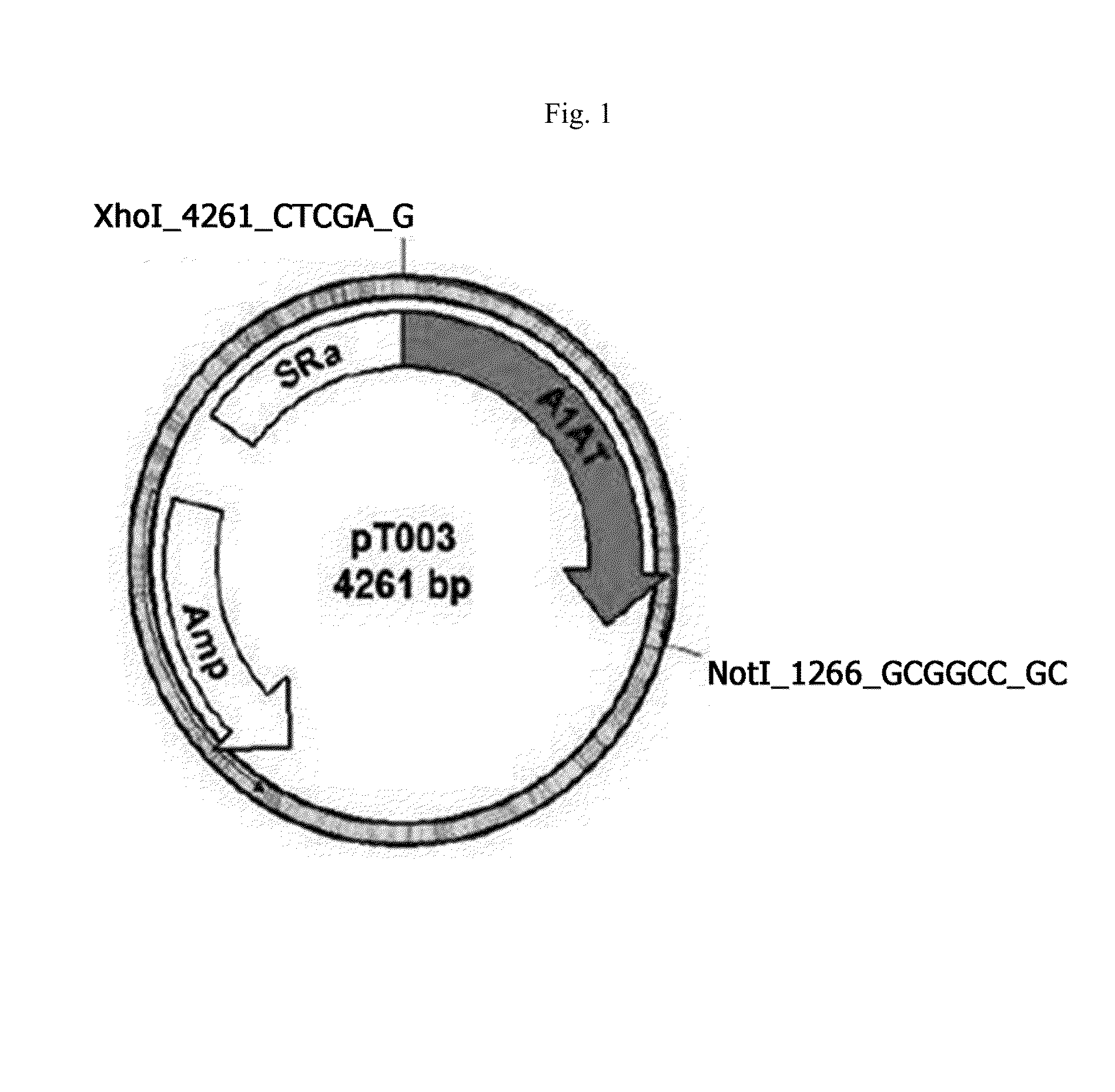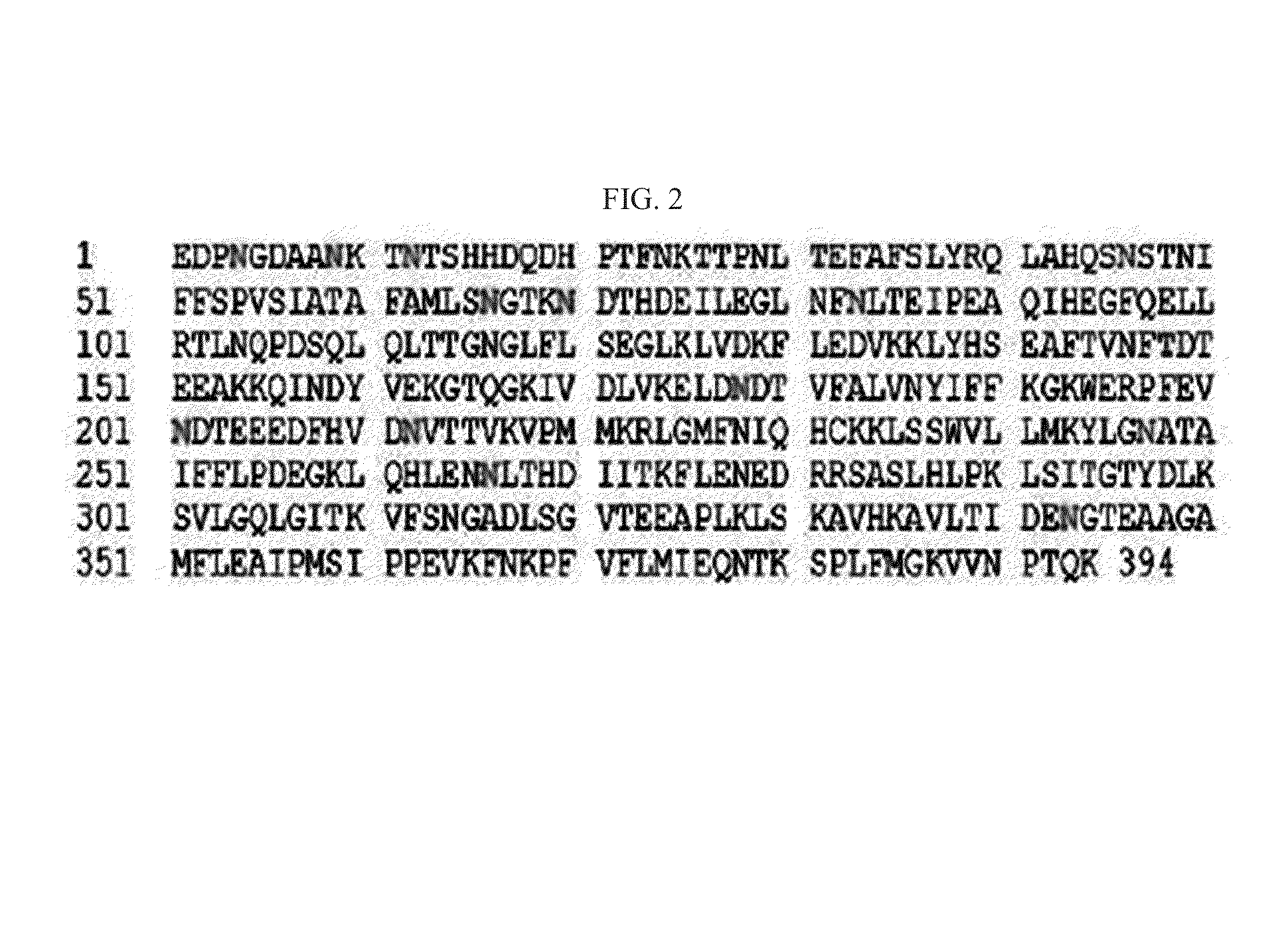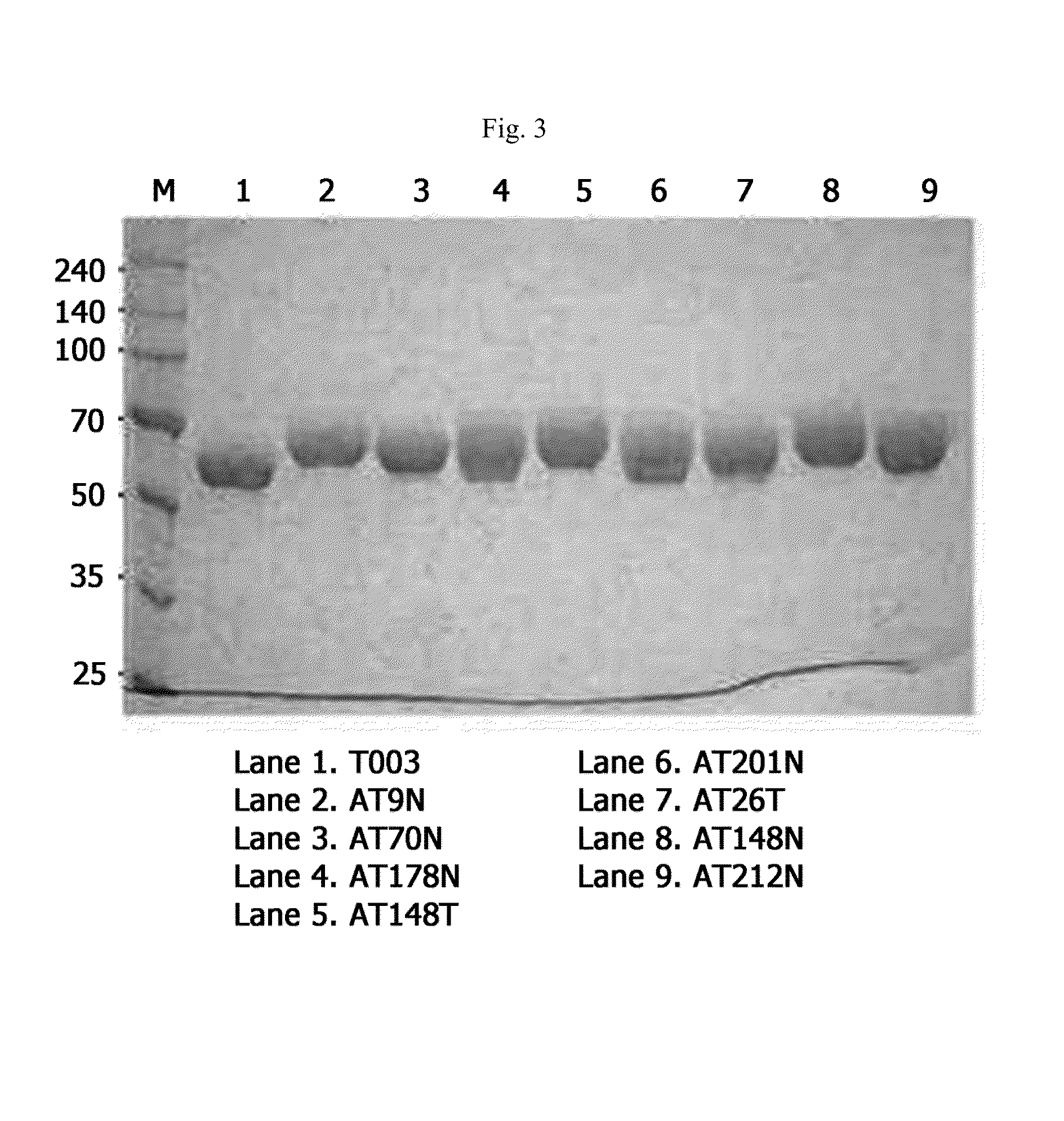Alpha-1 antitrypsin variant, preparation method thereof and use thereof
an antitrypsin and alpha-1 technology, applied in the field of alpha-1 antitrypsin variants, can solve the problems of immunodeficient viruses, onset of hepatocirrhosis, diseases fatal to humans, etc., and achieve excellent stability in the body, maintain inhibitory effect on elastase activity, and increase the time curve (auc).
- Summary
- Abstract
- Description
- Claims
- Application Information
AI Technical Summary
Benefits of technology
Problems solved by technology
Method used
Image
Examples
example 1
Preparation of Alpha-1 Antitrypsin and Variant and Dimer Thereof
[0061]1-1. Construction of Expression Vector pAV1
[0062]A pAV1 vector developed by properly modifying a parent vector, pSGHVO (GenBank Accession No. AF285183), for the purpose of industrial use was used as an expression vector required for the cloning in the present invention. The parent vector was a laboratory vector constructed to easily purify a protein having physiological activities when a human originated protein was overexpressed at a high concentration and released from animal cells, but did not exhibit activities when the protein was expressed in bacteria such as E. coli. However, because the parent vector had various limitations in use for the production in industries, the parent vector was modified to be used in the industries having a high expression level of the protein which is the highest merit of the pSGHV0 vector.
[0063]1-2. Construction of Alpha-1 Antitrypsin (Subtype M3) Vector (pT003)
[0064]To construct...
example 2
Preparation of Fusion Protein of Human Growth Hormone / Alpha-1 Antitrypsin Variant
[0080]To prepare a fusion protein of a human growth hormone / alpha-1 antitrypsin variant (AT9N), the pAT9N (subtype M2) was used as the alpha-1 antitrypsin variant. To construct a fusion vector, a human growth hormone gene (IOH45734, Invitrogen) used as a template was amplified by PCR using two primers: XhoGH forward primer (5′-GGG CCC CTC GAG GCC ACC ATG GCT ACA GGC TCC CGG-3′, SEQ ID NO: 33) and GHBam reverse primer (5′-GGG GGG ATC CTC GAA GCC ACA GCT GCC CTC-3′, SEQ ID NO: 34). Both ends of the amplified nucleotide were digested with two restriction enzymes XhoI and BamHI, and then fused with an expression vector pAT9N (M2) having an XhoI / BamHI restriction site, resulting in the construction of a human growth hormone / alpha-1 antitrypsin variant fusion vector (phGH-AT9N (M2), SEQ ID NO: 43).
example 3
Preparation of Fusion Protein of Granulocyte Colony Stimulating Factor / Alpha-1 Antitrypsin Double Variant
[0081]3-1. Preparation of Alpha-1 Antitrypsin Double Variant
[0082]The alpha-1 antitrypsin variant (AT9N) vector constructed in the same manner as in Example 1-5 was used as the template, and the following two primers: forward primer (5′-CCA TGT TTT TAG AGG CCA TAA ACA TGT CTA TCC CCC CC-3′, SEQ ID NO: 35) and reverse primer (5′-GGG GGG GAT AGA CAT GTT TAT GGC CTC TAA AAA CAT GG-3′, SEQ ID NO: 36), and a mutagenesis kit (Enzynomix, EZchange™ Site-Directed Mutagenesis Kit) were used to construct a vector pT004N (Q9N, P357N) containing an alpha-1 antitrypsin double variant in which glutamine at a 9th position of the N-terminus of alpha-1 antitrypsin was substituted with asparagine and proline at a 357th position was also substituted with asparagine. The amino acid sequence of the resulting alpha-1 antitrypsin double variant was set forth in SEQ ID NO: 44.
[0083]3-2. Preparation of Fu...
PUM
| Property | Measurement | Unit |
|---|---|---|
| concentration | aaaaa | aaaaa |
| molecular weight | aaaaa | aaaaa |
| pH | aaaaa | aaaaa |
Abstract
Description
Claims
Application Information
 Login to View More
Login to View More - R&D
- Intellectual Property
- Life Sciences
- Materials
- Tech Scout
- Unparalleled Data Quality
- Higher Quality Content
- 60% Fewer Hallucinations
Browse by: Latest US Patents, China's latest patents, Technical Efficacy Thesaurus, Application Domain, Technology Topic, Popular Technical Reports.
© 2025 PatSnap. All rights reserved.Legal|Privacy policy|Modern Slavery Act Transparency Statement|Sitemap|About US| Contact US: help@patsnap.com



